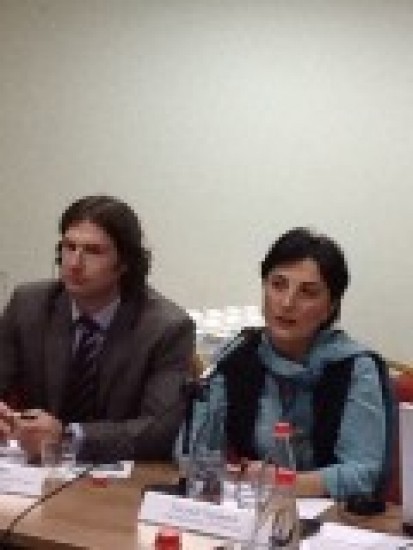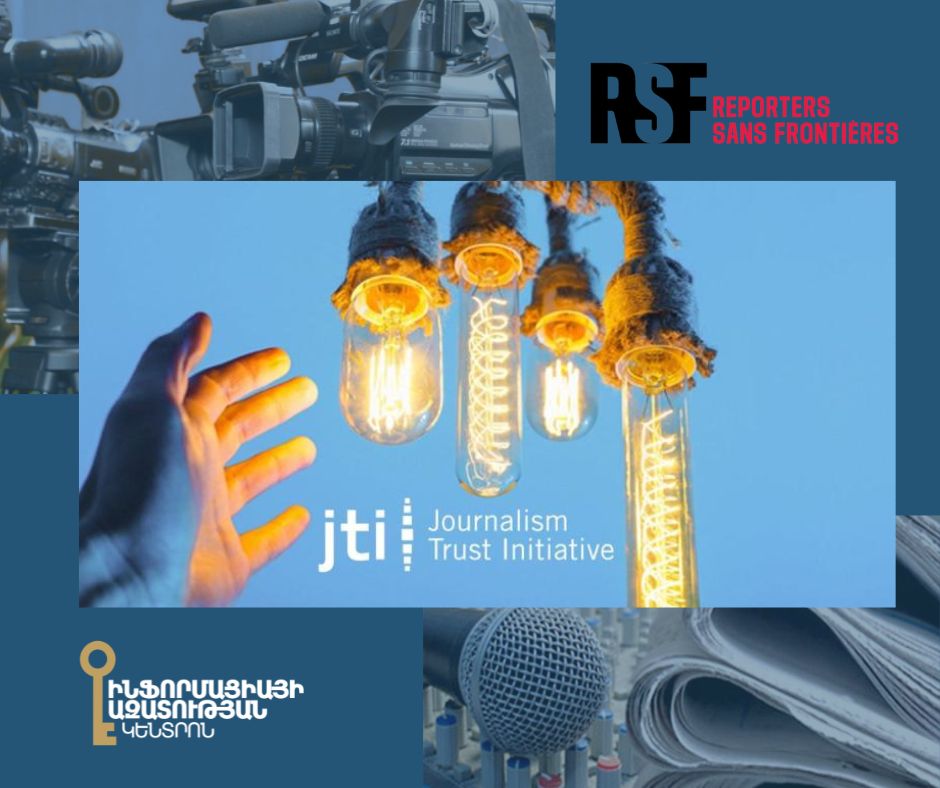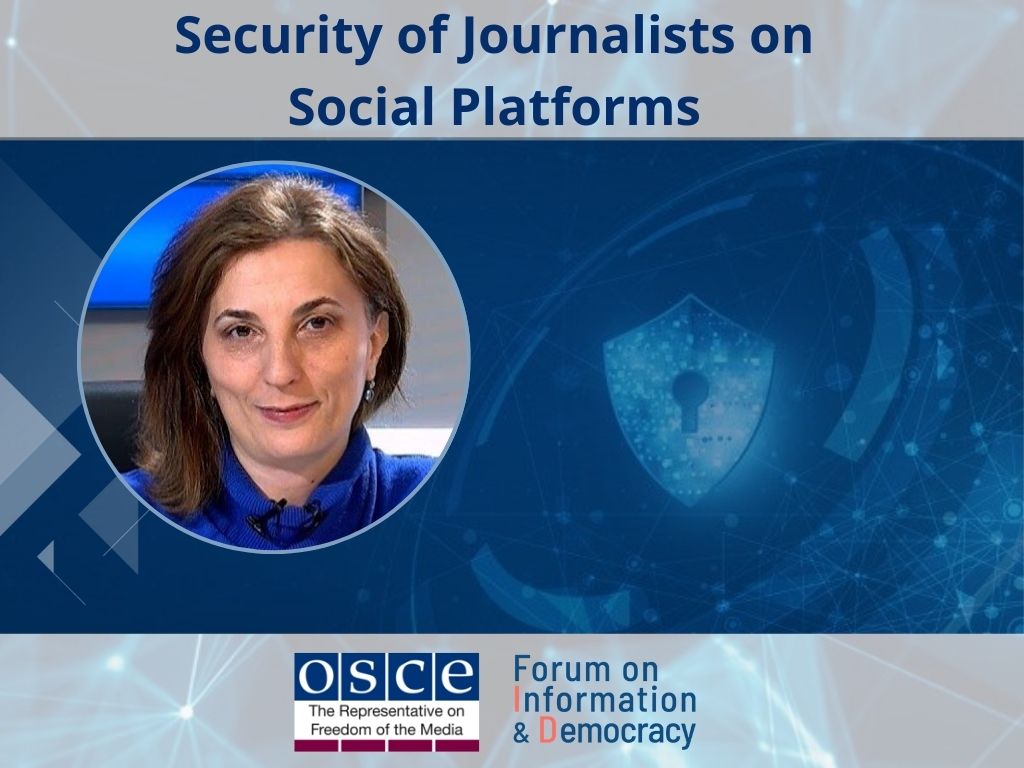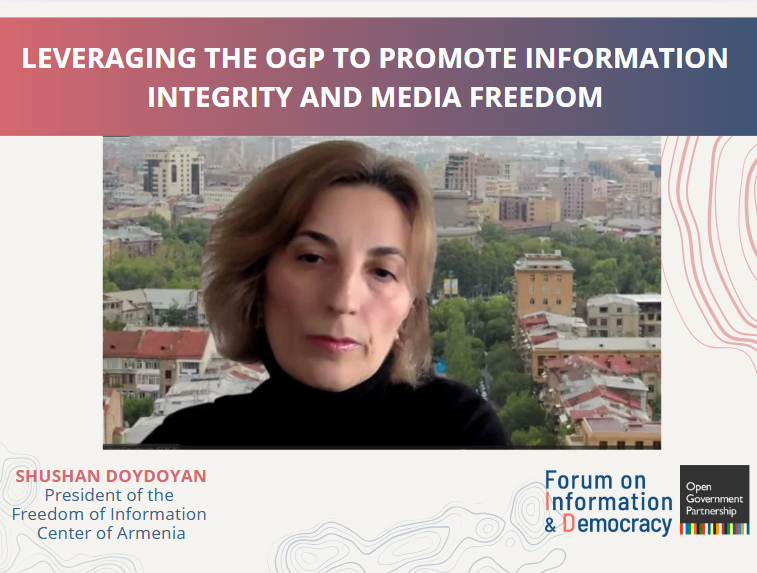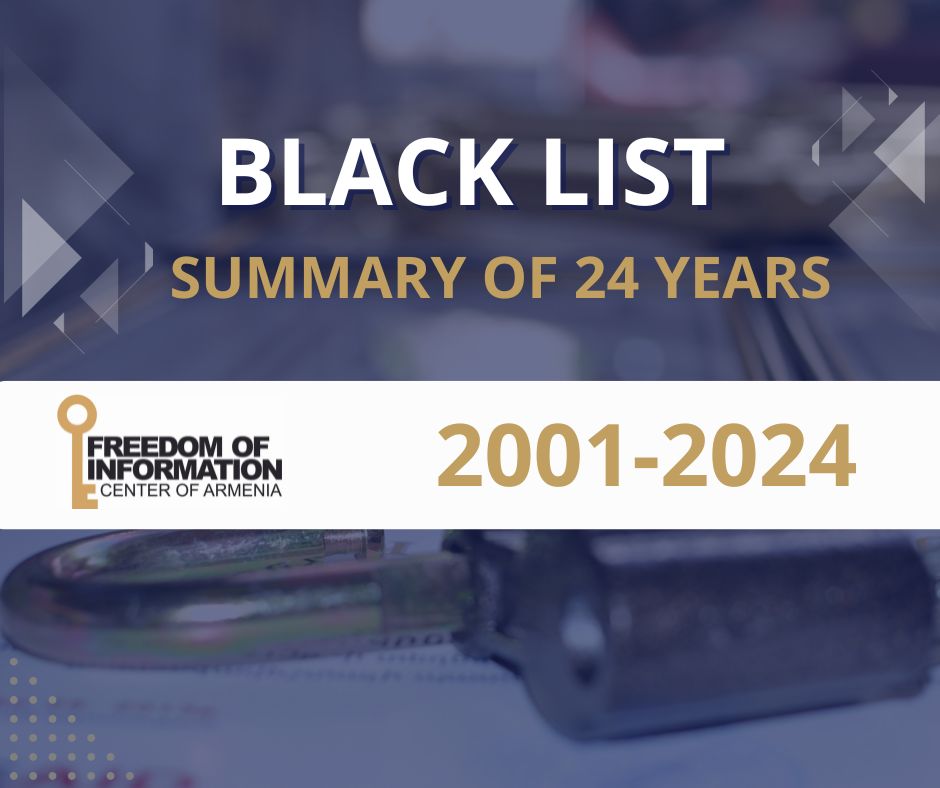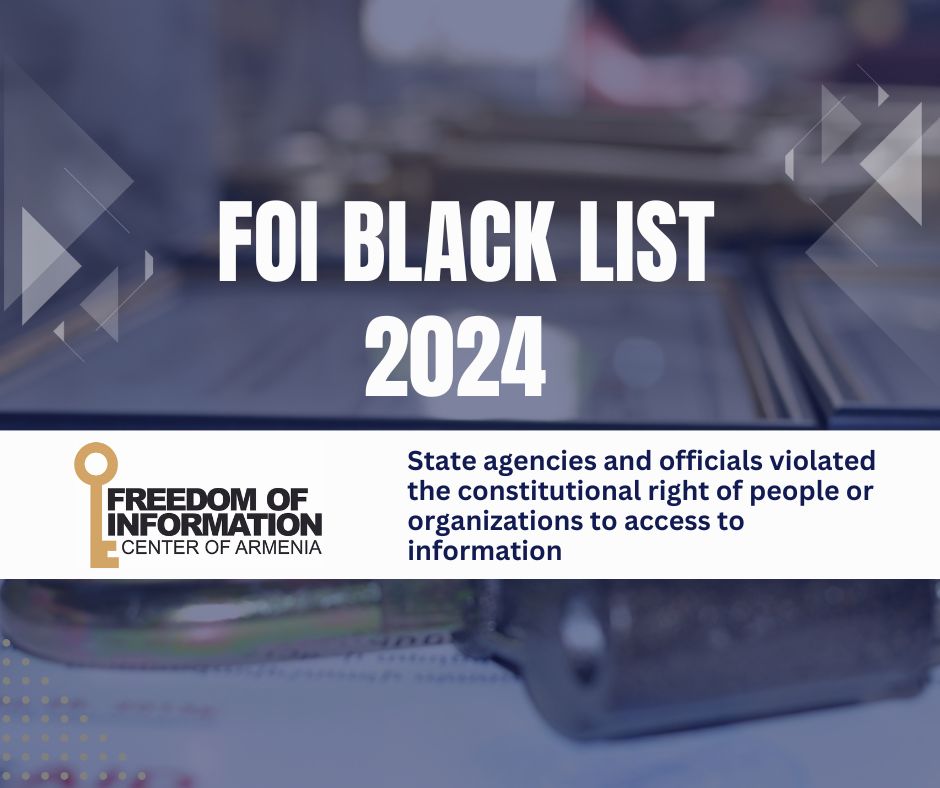On November 27, 2012 by the support of OSCE Yerevan Office, the Freedom of Information Center organized a workshop with participation of the Information Disputes Council members and representatives of the RA Judicial Department’s Working Group. The objective of the meeting was to discuss prospects of developing the IDC activities.
The attendants were welcomed by Oliver McCoy, Democratization Programme Manager, OSCE Yerevan Office, who stated: “I attach much importance to the IDC activities, because the people gathered here have much experience and may appear in courts as experts. I would recommend using the IDC opinions in courts.” O. McCoy also added that the OSCE Yerevan Office will support such initiatives. Shushan Doydoyan, President, Freedom of Information Center and Secretary of IDC then presented the 1.5-year-long work implemented by the Information Disputes Council and noted: “IDC has seen all sorts of responses during its activities – from praising, welcome words to criticism and unfounded accusations.”
The Information Disputes Council has already published 24 opinions, of which 5 were initiated by one of the litigants, and the rest were at the Council’s own initiative. S. Doydoyan noted: “Initially, the IDC would publish opinions during the processes of court hearings on insult and defamation/libel. However, starting from May 2012 the opinions are published only after the court investigations are over, in order to prevent intervention or forming biased opinions on the process of delivering justice.”
Workshop speaker Ara Ghazaryan, Deputy Director of Arni Consult Ltd. law firm, member of the Information Disputes Council mentioned: “IDC has covered only court cases where one of the litigants was a mass media organization.” The statistical data presented by A. Ghazaryan suggested that the number of court hearings on insult and defamation/libel cases has decreased significantly in 2012 as compared to those in 2010 and 2011. This reduction trend is attributed to the Constitutional Court ruling in October 2011, which was later supplemented by a precedent of the RA Court of Cassation ruling in April 2012. “In 2012, rulings of all courts followed the guides of the Constitutional Court and Court of Cassation”, noted the speaker.
The speaker also commented on the problem of compensation amounts: “Since early 2012 the courts have started to consistently reduce amounts of compensation for legal expenses and non-financial damages in both newly initiated and ongoing cases. Furthermore, in deciding the compensation amounts the courts have started to consider the defendant media organization’s situation with assets, the method used for spreading the disputableinformation, the status of the plaintiff (the courts have been significantly reducing or rejecting claims by political figures, oligarchs or high-ranking officials), as well as what negative effects might the compensation amount have on the media outlet’s activities, which are viewed as a public interest. This means courts have started seeing public legal relations (the freedom of expression rights for mass media and citizens’ right to receive information) within civil legal relations, which causes the courts to apply the principle of balance for conflicting public and individual interests.”
A.Ghazaryan presented the IDC approach to selection of cases: “The IDC might pick a single phenomenon from the whole case, given its importance.” As the speaker noted, one of the main functions of IDC is policy development and consequently, the IDC has not reviewed repeating, similar cases. Every single opinion of the Council has been related to a specific issue, such as statute of limitations, compensation amount, etc. A Ghazaryan also presented some statistics on insult and defamation/libel cases and mentioned the number of cases in different periods, nature of court rulings, and the trends forming in judicial practice. The addresses by speakers were followed by active discussions. MananaAslamazyan, Member of Information Disputes Council, stated: “IDC members have been dealing with mass media regulation issues for many years. Sometimes the mass media do wrong. I believe the role of IDC among other things is aimed at mass media regulation. By its activities and decisions the IDC helps journalists act in the most professional manner.”
Some of the RA Judicial Department’s Working Group members expressed a concern that the IDC opinions might seed distrust in the judicial system, to which IDC member and President of Yerevan Press Club Boris Navasardyan responded: “Judicial rulings cause debates anyway. It is better if these debates are professional.” Also in B. Navasardyan’s opinion the role of the judiciary has increased.
During the discussions an opinion was expressed that the Information Disputes Council should be given an appropriate status, which would help the IDC assume the role of a mediator. ShushanDoydoyansuggested that a precedent could be created whereby the courts would turn to IDC for an expert opinion. Manana Aslamazyan added that IDC could provide an opinion from the linguistic and journalistic ethics perspective.
The RA Judicial Department’s Working Group membersprincipally had no objections to this approach, but emphasized that mechanisms have to be found for its implementation. Sergey Sahakyan, Deputy Head of the Legal Practice Overview Unit of the Judicial Department recommended that IDC should express its opinion before lawsuits are filed, as this would decrease the workload of the courts and will prevent biased opinions about the court cases.
At the end of the workshop the participants underscored the usefulness of such discussions in exposing the existing problems. Arsen Babayan, Head of the International Cooperation Public Relations Service of the Judicial Department proposed and expressed willingness to continue the cooperation between the IDC and the Judicial Department.

